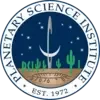July 19, 2024, Tucson, Ariz. – Planetary Science Institute Research Scientist Jamie Molaro has been honored with the 2024 Susan Mahan Niebur Early Career Award.
The award is given by NASA’s Solar System Exploration Research Virtual Institute (SSERVI) to an investigator who is within 10 years of receiving their Ph.D. and has made significant contributions to the exploration science communities.
The award citation says: “Dr. Jamie Molaro is a Research Scientist at the Planetary Science Institute studying weathering and landscape evolution on airless icy and rocky bodies. After receiving her Ph.D. from the University of Arizona in 2015, she obtained a NASA Postdoctoral Program Fellow at NASA’s Jet Propulsion Laboratory, where she is geographically based. Dr. Molaro is a former Participating Scientist on NASA’s OSIRIS-REx mission and current member of the Sample Science Team, as well as a Co-I for the SSERVI Project ESSPRESSO team. She has received numerous awards and honors, including the NASA Planetary Science Early Career Award in 2023 and naming of Asteroid 30379 Molaro by the International Astronomical Union in 2021. In addition to planetary science, Molaro has also performed research to advance accessible design in human spaceflight with AstroAccess.”
“I study the role of daily heating and cooling in how boulders weather over time. Thermal stress from daily cyclic heating can cause the development of fractures which drive the breakdown of boulders and evolution of rocky landscapes on the Moon, asteroids, and comets. In my work with the OSIRIS-REx team, we observed for the first time just how important this process can be on asteroid surfaces,” Molaro said.
Her work explores how this weathering process changes the sizes and shapes of boulders and regolith, as well as their mechanical properties such as porosity and strength. This not only helps us understand the history of the Solar System, but also has important implications for understanding observations from spacecrafts visiting or attempting to land on different worlds.
“The nature of this process varies from surface to surface depending on its composition and thermal environment, and with countless landscapes left yet to explore it’s an exciting and important area of work,” she said. She also studies the thermal evolution of icy regolith on ocean worlds like Europa and Enceladus and differences between the properties of rock and ice.
Outreach and service are also important parts of her career. She is the founder and the director of both The Art of Planetary Science, a public engagement effort to help people connect to science through art shows and workshops, and DAIS (Disabled for Accessibility In Space), a peer networking and support organization for Disabled scientists.
As a Disabled scientist herself, Molaro is an advocate for making science more accessible, both in the academic community and in human spaceflight. In her work with AstroAccess, she led a team of 50 volunteers to develop experiments on tools and techniques to help future disabled astronauts operate and communicate effectively in space environments. AstroAccess flew Disabled researchers on several flights with the Zero-G corporation to test the experiments in weightlessness.
“I am really proud to receive this award. It feels good to be recognized by my community for the work that I’m doing, both in traditional academic science and my service projects,” she said.
Susan Mahan Niebur (1978-2012), who this award honors, was a former Discovery Program Scientist at NASA who initiated the first ever Early Career Fellowship and the annual Early Career Workshop to help new planetary scientists break into the field.
PSI CEO and Director Mark Sykes said, “Jamie adds dimensionality to being a planetary scientist. There is her excellent scientific work including thermal weathering on airless bodies, as well as her encouragement of art in planetary science and advocacy to open up working in space to the disabled. It is the kind of living richness and initiative with which I think Susan would have resonated.”
MEDIA CONTACT:
Alan Fischer
Public Information Officer
520-382-0411
[email protected]
SCIENCE CONTACT:
Jamie Molaro
Research Scientist
[email protected]
PSI INFORMATION
Mark V. Sykes
Director
520-622-6300
[email protected]
PSI HOMEPAGE
https://www.psi.edu
PSI PRESS RELEASES
https://www.psi.edu/press-releases/
THE PLANETARY SCIENCE INSTITUTE:
The Planetary Science Institute is a private, nonprofit 501(c)(3) corporation dedicated to Solar System exploration. It is headquartered in Tucson, Arizona, where it was founded in 1972.
PSI scientists are involved in numerous NASA and international missions, the study of Mars and other planets, the Moon, asteroids, comets, interplanetary dust, impact physics, the origin of the Solar System, extra-solar planet formation, dynamics, the rise of life, and other areas of research. They conduct fieldwork on all continents around the world. They also are actively involved in science education and public outreach through school programs, children’s books, popular science books and art.
PSI scientists are based in 35 states and the District of Columbia.
###

